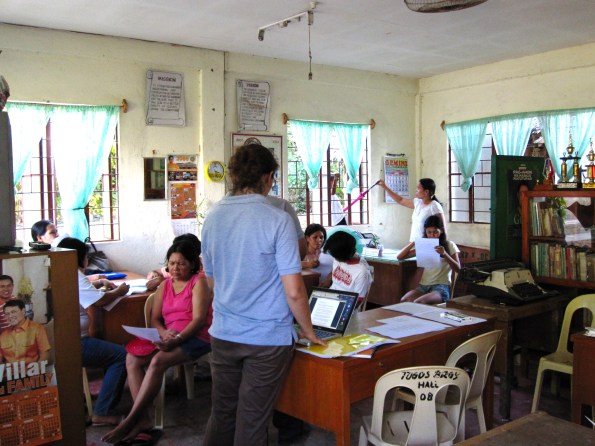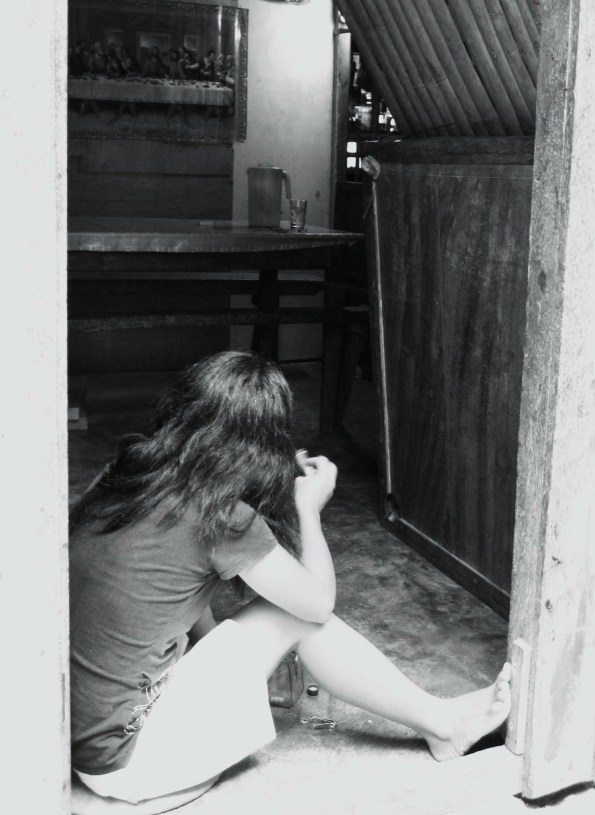internship thoughts
The initiative SWAP (Sorsogon Work Access Project) that I’m currently working on is a joint-effort amongst 3 organizations: The University of Michigan, IPA, (Innovations for Poverty Actions) an NGO that targets social and development issues, and PALFSI, (People’s Alternative Livelihood of Sorsogon. Inc) a microfinancing agent (MFI) based in Sorsogon, Philippines.
This start-up was created to better understand how to improve overseas employment for low-income Filipinos. And so far the team has classified the issues into 2 main categories: financial and information barriers.
The financial problems include the applicant’s lack of funds to pay for document fees, standard things like passport, air ticket, placement fees. They are unable to borrow from financial institutions due to their non-existent credit standing.
The information issues consist of the job seekers ‘not knowing how and/or where’ to apply for overseas employment, unaware of standard wages, job description and cultural differences etc. There have been many cases of worker exploitations, and for more the severe incidents: human trafficking.
Our target sample of 5000 households, includes low-income families living under tin-roofs with dirt floor coverings. Usually there is a pigsty or chicken coop right by the door; I suppose the families rely on these livestock to provide the basic food. They hand-wash clothes with soap and a scrub-board, and bathe in the murky waters of the nearby river filled with trash.
Considering their situation, I initially questioned why we were trying to send them overseas. I argued that one’s living condition is an indicator of one’s wealth which links to education level. And in this day and age, education/proper training is necessary to be employable. So, without clean water, food and the basic hygiene, here we are: trying to assist in sending them abroad. And you say we Economists are rational.
But this is where it becomes interesting.
The Philippines’ economy is kept afloat not by agriculture or tourism, rather what drives the GDP is the export of labour and through the remittances sent home by these OFW (Overseas Filipinos Workers). Many find it attractive to work abroad, mainly because they can earn 2 to 3 times more than if they stayed in the Philippines.
I talked to some businessmen in Manila and they pointed out an ongoing problem. One stated, “I hire a domestic helper for my aging mother, 3 months later she leaves for overseas. I pay her about 4000 Pesos (90USD) a month. But when she goes abroad, she earns about 12000 Pesos! How am I able to compete with such wages?”
Things only become more complicated when I asked about the different sectors, what we consider to be ‘skilled labour’. Do engineers and nurses prefer to go abroad too? Yes. But it is usually because there are insufficient jobs locally. And, in order to be eligible for overseas employment, interested workers are required to take an external exam that certifies them as qualified for international standards. However in reality, many of them – especially nurses, are unable to gain this accreditation. This results in many becoming jobless, only to increase the unemployment rate in the Philippines.
After 4 years of studying Economics, I am finally able to witness firsthand the ongoing failure of labour markets and the drastic impact it has on the living standards. Sure the financial crisis was damaging too, but I consider that situation to be slightly different. In many ways, it is exciting to put concepts learnt into application.
Ask if there is evidence between working abroad and improved living conditions, and many will tell you plenty of success stories. Ask if families crumble due to working abroad, and many shrugged their shoulders and said: that’s common.
But the unspoken consent is that these OFWs are the ‘unsung heroes’ of their country, and they are honoured for the sacrifices made to provide a better living for their families and the Philippines.
The initiative SWAP (Sorsogon Work Access Project) that I’m currently working on is a joint effort amongst 3 organizations: The UofM, IPA (Innovations for Poverty Actions) an NGO that targets social and development issues, and PALFSI (People’s Alternative Livelihood of Sorsogon. Inc) a microfinancing agent (MFI) based in Sorsogon, Philippines.
This start-up was created to better understand ways to improve overseas employment for low-income Filipinos. And so far the team has classified the issues into: financial and information barriers.
The financial problems include the applicant’s lack of funds to pay for document fees, standard things like passport, air ticket, placement fees. They are unable to borrow from financial institutions due to their non-existent credit standing.
The information issues consist of the job seekers ‘not knowing how and/or where’ to apply for overseas employment, unaware of standard wages, job description and cultural differences etc. There have been many cases of worker exploitations, and for more severe incidents: human trafficking.
Our target sample of low-income households living under tin-roofs with dirt floor coverings. Usually there is a pigsty or chicken coop right by the door; I suppose these are the only livestock that provides the additional food. They hand-wash clothes with soap and a scrub-board and bathe in the murky waters of the nearby river filled with trash.
Considering their situation, I initially questioned why we were trying to send them overseas. I argued that one’s living condition is an indicator of one’s wealth which links to education level. And education/proper training is necessary to be employable. So, without clean water, food and the basic hygiene, here we are: trying to assist in sending them abroad. And you say we Economists are rational.
But this is where it becomes interesting.
The Philippines’ economy is kept afloat not by agriculture or tourism. Rather what drives the GDP is the export of labour and through the remittances sent home by these OFW (Overseas Filipinos Workers). Many find it attractive to work abroad, mainly because they can earn 2 to 3 times more than if they stayed in the Philippines.
I talked to some businessmen in Manila and they pointed out an ongoing problem. One stated, “I hire a domestic helper for my aging mother, 3 months later she leaves for overseas. I pay her about 4000 Pesos (90USD) a month. But when she goes abroad, she earns about 12000 Pesos! How am I able to compete with such wage?”
Things only become more complicated when I asked about the different sectors, say what we consider to be ‘skilled labour’. Do engineers and nurses prefer to go abroad too? Yes. But only because there are insufficient jobs locally. And,in order to be eligible overseas employment, interested workers are require to take an external exam that certifies them as qualified for international standards. However in reality, many of them – especially nurses, are unable to gain this accreditation. This result in them staying in the Philippines – jobless and only to increase the unemployment rate.
After 4 years of studying Economics, I am finally able to witness firsthand the failure of labour markets and the drastic impact it has on the living standards. I guess in many ways, it is exciting to put concepts learnt into application.
Ask if there is evidence between working abroad and improved living conditions, and many will tell you plenty of success stories.
Ask if family breakups occur due to working abroad, and many will shrug their shoulders and say: that’s common.
But the unspoken consent is that these OFWs are the ‘unsung heroes’ of their country, and they are honoured for the sacrifices they make to provide a better living for their families.
**
While I walked along the streets of Pilar during a field observation, children were running up and waving at me. I remembered these 2 girls playfully whispering and pointing at me as I snapped pictures of the neighbourhood. I pointed towards my camera and immediately their faces brightened up.
They look so happy, revealing much contentment. Little do they know that the world, myself included, has ‘condemened’ them as poor. Do they even know what they lack? Or ever dream of going outside their village and beyond the bay?
Our hope is that through the remittances sent home by their parent(s), these children will have a better future – they little ones will be uplifted from the bondage of financial poverty into freedom.
My Economist professor once said that the meaning of freedom is to have more options to choose from.
I agree, to a certain extent.
How then does my walk with the Lord apply to this concept? There is after all, only one choice of following and if I take the definition at face value, then perhaps I really won’t be will be through this, won’t we gain freedom in abundance?









Leave a comment